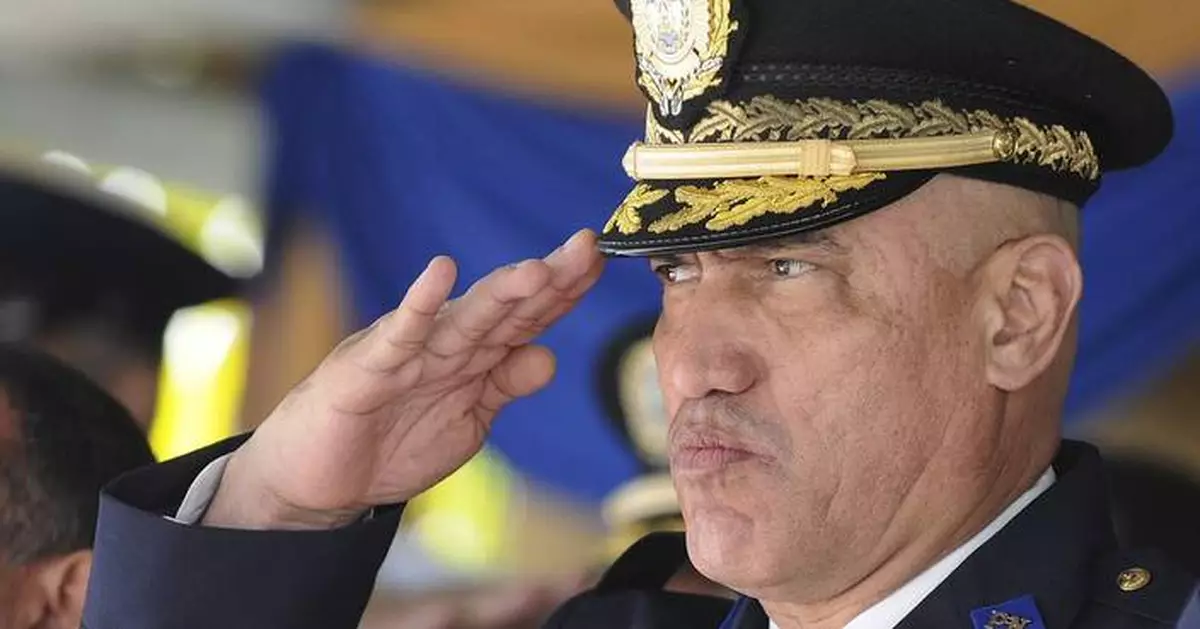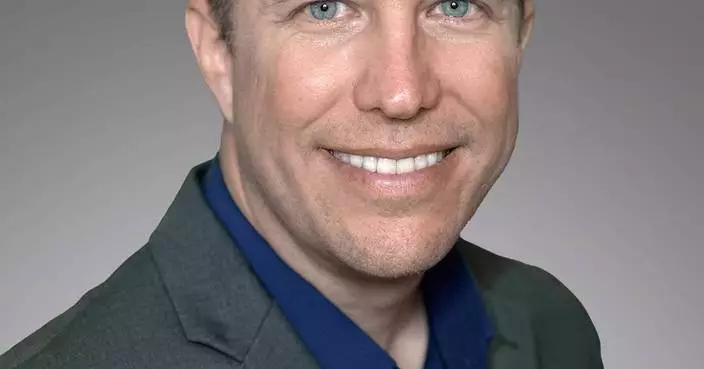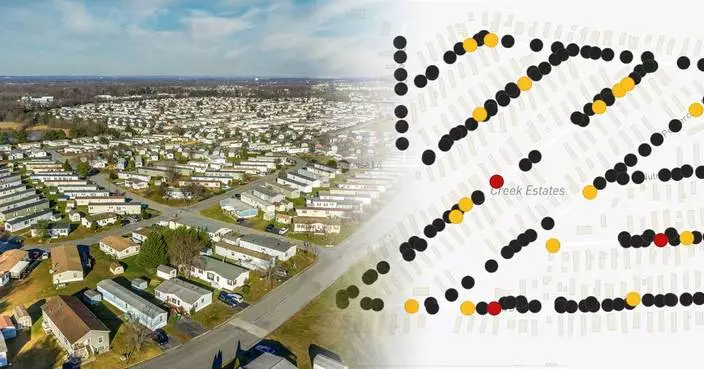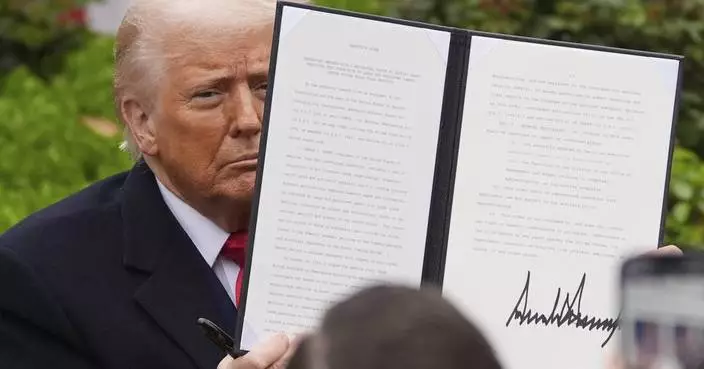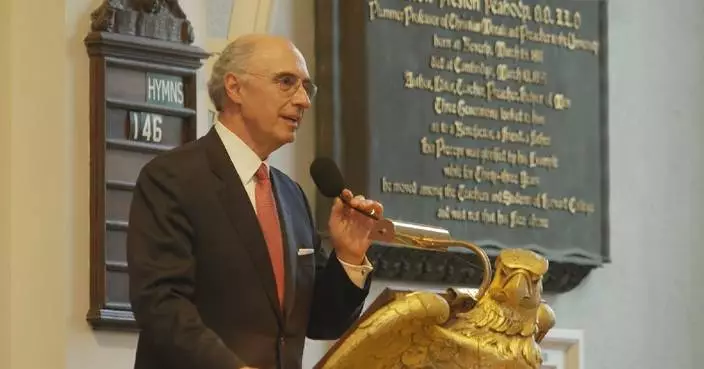NEW YORK (AP) — The former chief of the Honduran National Police was sentenced Thursday to 19 years in prison after he pleaded guilty in a conspiracy to protect shipments of cocaine destined for the United States.
Juan Carlos Bonilla Valladares, 64, better known as “El Tigre” or “The Tiger,” was a member of the Honduran National Police for decades before becoming its leader for a year in 2012.
He rose to power by enabling cocaine trafficking on a massive sale and using violence, including murder, to protect the drug trade, prosecutors said in a presentencing brief. They had asked that he be sentenced to 30 years in prison.
The sentence in Manhattan federal court was announced by Judge P. Kevin Castel.
In a brief by the defense, attorney Donald Vogelman requested a sentence of 10 years in prison. He wrote that Bonilla Valladares “was not always involved in illegal activities” and that although he admitted his guilt in a drug conspiracy, “he adamantly denies being involved in any murders.”
“From time to time he was involved in the illegal drug trade. He actually did good work in service to his country most of the time. He was a very gifted man who lived a dual life which was unfortunate,” Vogelman said.
The lawyer said his client was in poor health and “will be a marked man” if he survives incarceration and is returned to Honduras.
“He will not go back to criminal activities. That chapter in his life is behind him,” the lawyer said.
In Honduras, retired Honduran National Police commissioner Henry Osorio Canales said the sentence was the latest example of how his country's institutions were at the service of drug traffickers.
“We had a government that was in criminal hands, which steered the destiny of the people and El Tigre was its armed branch,” he said.
A son of Bonilla Valladares by the same name, Juan Carlos Bonilla, who was in the courtroom Thursday, told Honduras’ HRN radio that his father maintains his innocence and only made a guilty plea because he hopes to one day be free again.
“He told us it was all a political persecution,” the younger Bonilla said. “Today was very difficult to see my father in that situation.” He added that his father would appeal his sentence.
Prosecutors said Bonilla Valladares accepted lucrative bribes for providing armed protection as cocaine was transported across Honduras. They said he directed other corrupt law enforcement officers to protect those shipments and furnished sensitive law enforcement information about pending raids to his co-conspirators.
He was arrested March 9, 2022, after he was labeled by U.S. prosecutors as a co-conspirator of former President Juan Orlando Hernández and the president’s brother Tony Hernández. Prosecutors said prior to his sentencing that the brothers were the “powerful political allies” of Bonilla Valladares.
In June, Juan Orlando Hernández was sentenced to 45 years in prison in Manhattan federal court after he was convicted in March on drug charges after a two-week trial that was closely followed in his home country.
Tony Hernández, a former Honduran congressman, was sentenced to life in a U.S. prison in 2021 in the same courthouse for his own conviction on drug charges.
In a release, U.S. Attorney Damian Williams said Valladares “committed the very crimes he was sworn to prevent.”
Anne Milgram, administrator of the Drug Enforcement Administration, said Bonilla Valladares exploited his position as head of the Honduran National Police to “traffic cocaine to the United States and protect drug traffickers.”
Associated Press writer Marlon González in Tegucigalpa, Honduras, contributed to this report
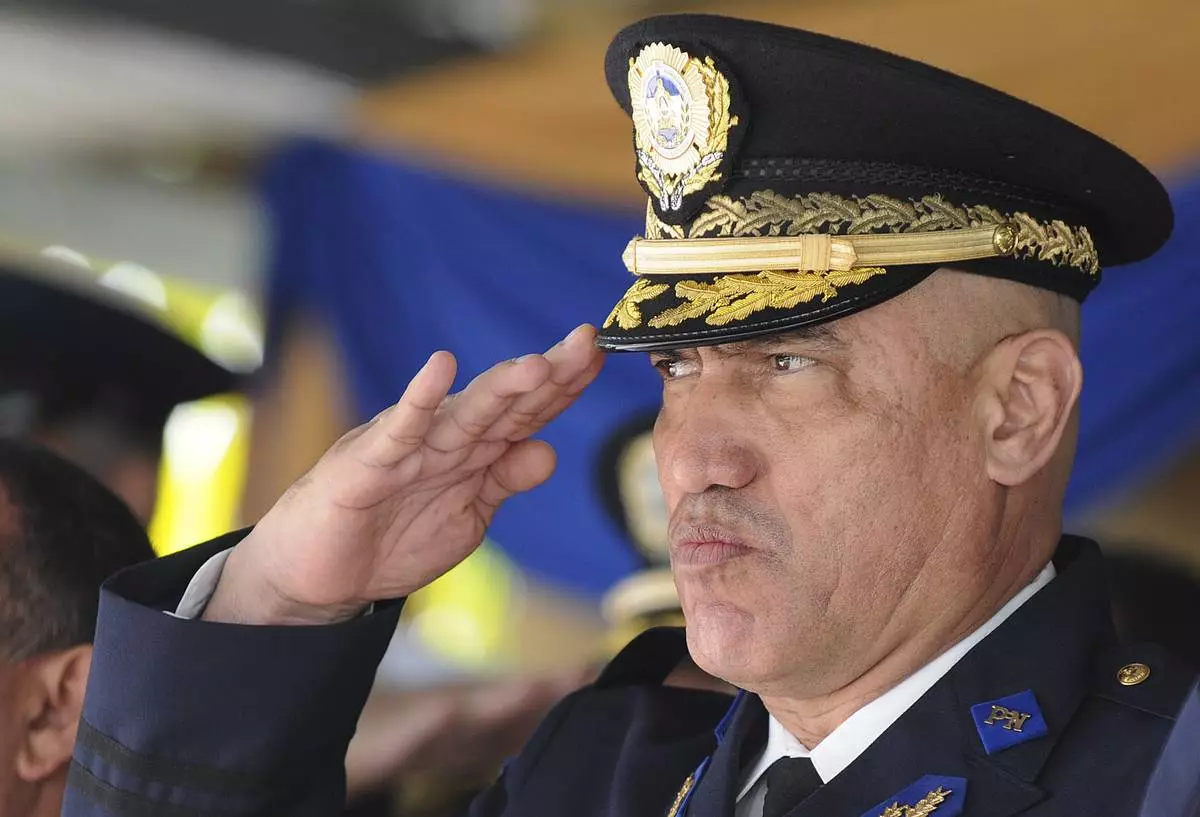
FILE - Honduras Police Chief Gen. Juan Carlos Bonilla Valladares, also known as the Tiger, or "El Tigre," salutes during an event in Tegucigalpa, Honduras, Dec. 21, 2012. The former chief of the Honduran National Police was sentenced Thursday, Aug. 1, 2024, to 19 years in prison after he pleaded guilty in a conspiracy to protect shipments of cocaine destined for the United States. (AP Photo, File)
BIRMINGHAM, Ala. (AP) — On a day when stock markets around the world dropped precipitously, Alabama Republican Party Chairman John Wahl led a celebration of the president whose global tariffs sparked the sell-off.
With no mention of the Wall Street roller coaster and global economic uncertainty, Wahl declared his state GOP’s “Trump Victory Dinner” — and the broader national moment — a triumph. And for anyone who rejects President Donald Trump, his agenda and the “America First” army that backs it all, Wahl had an offer: “The Alabama Republican Party will buy them a plane ticket to any country in the world they want to go to.”
Wahl's audience — an assembly of lobbyists and donors, state lawmakers, local party officials and grassroots activists — laughed, applauded and sometimes roared throughout last week's gala in downtown Birmingham, the rare Democratic stronghold in one of the nation’s most Republican states. The president’s son Donald Trump Jr. elicited perhaps the most enthusiasm with an unapologetically partisan pitch, even repeating the lie that his father won the 2020 election over Democrat Joe Biden.
Yet beyond the cheerleading, there were signs of a more cautious optimism and some worried whispers over Trump’s sweeping tariffs, the particulars of his deportation policy and the aggressive slashing by his Department of Government Efficiency.
That doesn’t mean Trump or Republicans are in danger of losing their grip in Alabama, where the GOP holds all statewide offices, dominates the Legislature and has won every presidential electoral vote since 1980. But it’s a notable wrinkle in a place where there's long been tension between relying on the federal government for funding and jobs, and an embrace of the kind of anti-Washington, anti-establishment populism that has twice propelled Trump to the Oval Office. And any cracks for Trump in Alabama — where he got 65% of the vote in 2024 — could portend trouble elsewhere, as the effects of a seismic shift in U.S. policy reach across the economy and society.
“There are some concerns, some conversations,” said John Merrill, a former secretary of state, over just what Trump’s agenda will mean on the ground. Alabama, he acknowledged, has “been a net recipient” of the very federal government and economic model Trump is upending, meaning it receives more money back from Washington than its taxpayers send the federal government.
“It’s a big risk,” said Merrill, who sported a Trump 45-47 pin on his lapel, a nod to the president's two terms.
Blocks to the south of the complex where Republicans convened sits the multibillion-dollar University of Alabama at Birmingham health system, a regional gem where research depends on grants from the National Institutes of Health.
Republican Alabama Attorney General Steve Marshall, listed as a “Silver Sponsor” of the gala, didn't join the Democratic attorneys general suing the Trump administration to stop the cancellation of certain research funding streams Congress already has approved.
Most of the medical services provided at UAB and many other hospitals throughout the state are covered by Medicare and Medicaid, two of the largest federal outlays. Alabama, because its per-capita income ranks among the lower tier among states, has one of the most generous federal match rates for Medicaid funding.
A short drive west toward Tuscaloosa sits a gargantuan Mercedes-Benz complex, one of the earliest examples of foreign auto manufacturers coming to the American South, where state laws are hostile to organized labor. The plants have provided jobs at wages higher than the local norms but in some cases lower than in union shops of the Great Lakes region around Detroit. Many suppliers have followed in the South, but not so many that the assembly plants don’t still import many parts that now will be subject to Trump’s tariffs.
Terry Martin, a county GOP committeeman in Tallapoosa County, said he supports the tariffs as leverage. Trump has “something to bargain with,” Martin said. But, “the parts that are coming from overseas … it’s going to pop it up” in price, he said, at least in the short term.
Agriculture, meanwhile, is still a dominant Alabama industry. Meat processing plants in the North and row crop farms in the South depend on migrant labor that Merrill, the former secretary of state, said involves workers who are in the U.S. both legally and illegally. Alabama, he recalled, passed its own strict immigration bill during Barack Obama's presidency only to roll it back after industry leaders complained of a depleted workforce.
Wahl, in an interview after the gala, took a more nuanced approach than he did at the podium.
“It is possible to secure our border and still take into account migrants who deserve to be here,” he said. “This has to be a two-pronged approach.”
Back in Birmingham, Interstate 65 splits the city. The aging, increasingly congested artery is a local priority for widening. The proposal has support from Alabama's two Republican senators, Tommy Tuberville and Katie Britt. U.S. interstate projects, though, are typically a 90-10 split, meaning 90% of the money comes from Washington, 10% from the state.
That funding — along with money for schools, Medicaid and other areas — could be at risk with Trump adviser Elon Musk and DOGE carrying Trump’s blessing to slash spending. GOP lawmakers who control Congress have supported Trump's agenda, which also includes dismantling the Education Department.
Tallapoosa County GOP Chair Denise Bates said “absolutely” there's a possibility DOGE could go too far. “I hope there are guardrails,” she said, noting she was once a local school board member.
“Am I 100% for getting rid of the Department of Education? I can’t say that I am,” she said, adding a phrase similar to Merrill’s description of the state as a whole. “You know, we’re a net receiver.”
Yet for all the caveats offered in one-on-one conversations, the GOP crowd cheered when Tuberville, the former football coach turned Trump acolyte on Capitol Hill, offered a plainspoken defense of Musk and his pop-up agency, telling the crowd, “We're dead broke.” And they roared as he addressed tariffs.
“It's past time we level the playing field and tell the rest of the world to get off their ass and start paying their fair share,” Tuberville said.
Bates argued that Alabama's embrace of Trump's “America First” push is not simply loyalty to the president. She said it reflects generations of voters watching the steel industry decline in Birmingham and, after the North American Free Trade Agreement was enacted in 1994, the textile industry leaving for Mexico and, eventually, Southeast Asia.
“We just want jobs,” she said.
Still, state Sen. Jabo Waggoner, the longest-serving member of the Alabama Legislature, made clear Trump's visceral appeal, declaring him “the most popular president here since Ronald Reagan, hands down.”
Wahl recalled Trump’s first massive outdoor rally as a presidential candidate: 30,000 people at Ladd-Peebles Stadium in Mobile, Alabama, in August 2015.
Wahl, who owns a butterfly farm outside Huntsville, said perhaps the best way to understand Trump and Alabama and this moment of uncertainty is to see a president who, at least to his supporters in the state, has earned the benefit of the doubt.
“He’s going to let everybody know he’s serious,” the chairman said. Trump is “going to bring people to the bargaining table. We’re actually going to see the negotiator conduct business.”
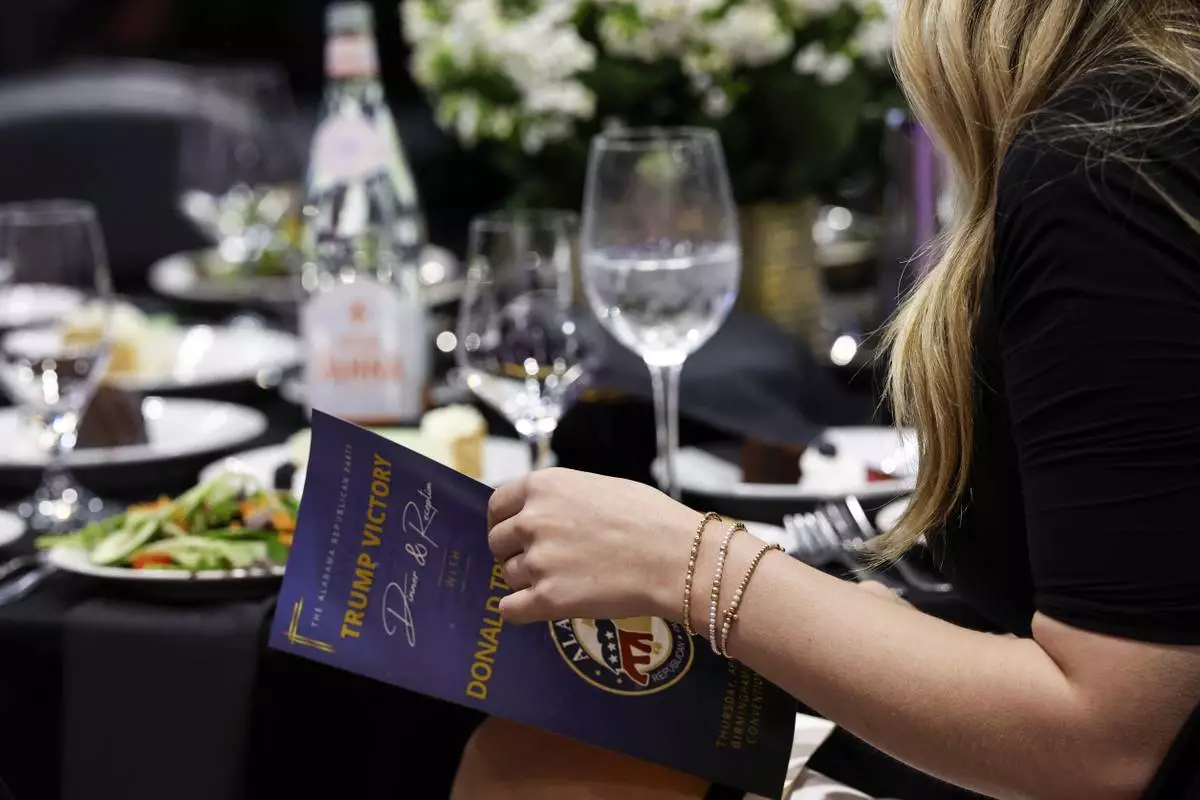
A guest looks over the program for Donald Trump Jr.'s visit to speak at the Alabama Republican Party's Trump Victory Celebration, Thursday, April 3, 2025, in Birmingham, Ala. (AP Photo/Butch Dill)
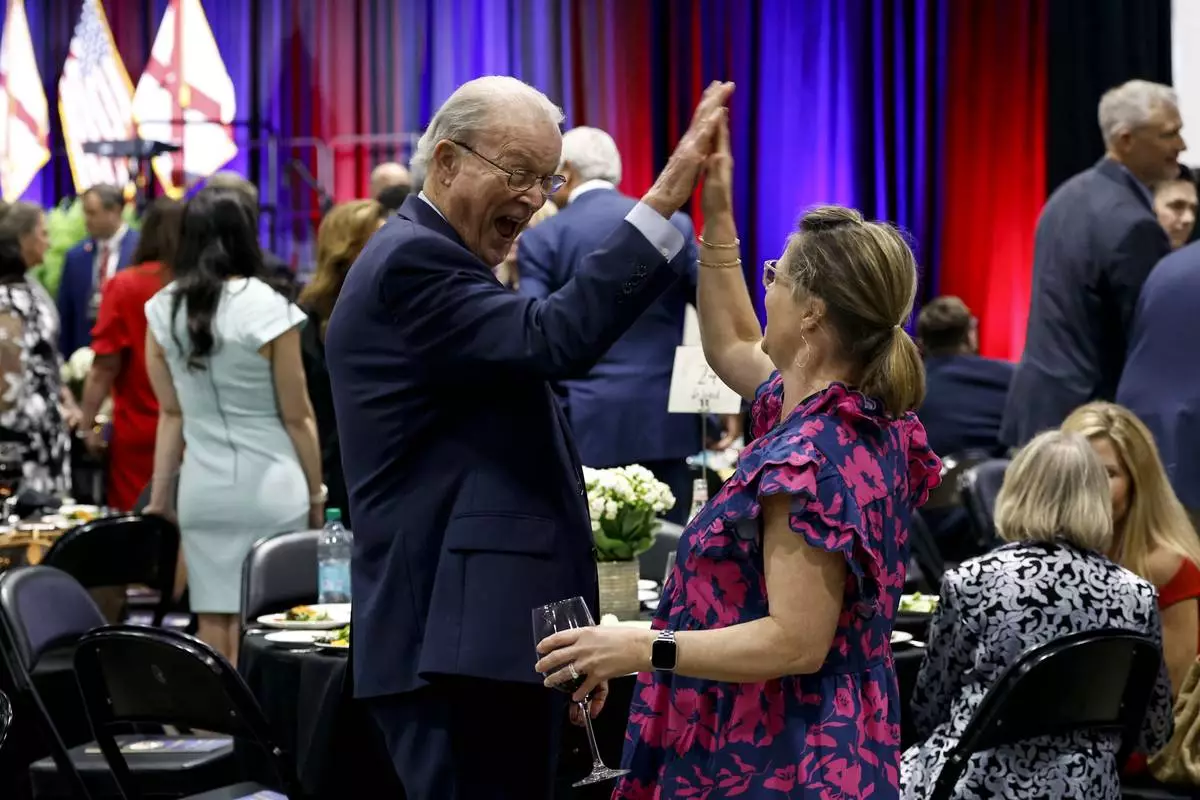
Alabama Sen. Jabo Waggoner, left, high fives a guest as they wait for Donald Trump Jr. to speak at the Alabama Republican Party's Trump Victory Celebration, Thursday, April 3, 2025, in Birmingham, Ala. (AP Photo/Butch Dill)
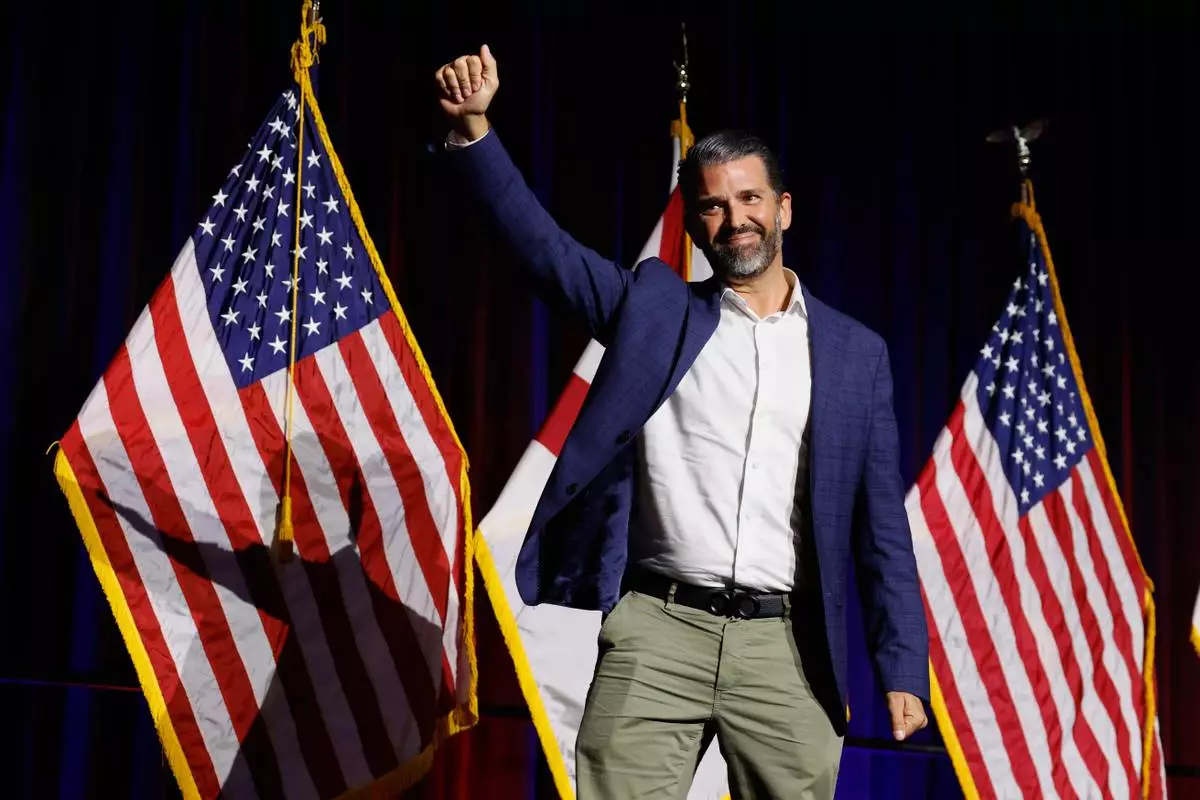
Donald Trump Jr. speaks at the Alabama Republican Party's Trump Victory Celebration, Thursday, April 3, 2025, in Birmingham, Ala. (AP Photo/Butch Dill)

Alabama Republican Party Chair, John Wahl, speaks before Donald Trump Jr.'s visit at the Alabama Republican Party's Trump Victory Celebration, Thursday, April 3, 2025, in Birmingham, Ala. (AP Photo/Butch Dill)

Alabama Republican Party Chair, John Wahl, speaks before Donald Trump Jr.'s visit at the Alabama Republican Party's Trump Victory Celebration, Thursday, April 3, 2025, in Birmingham, Ala. (AP Photo/Butch Dill)



